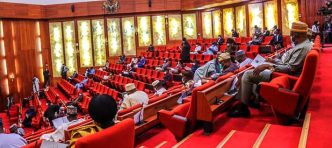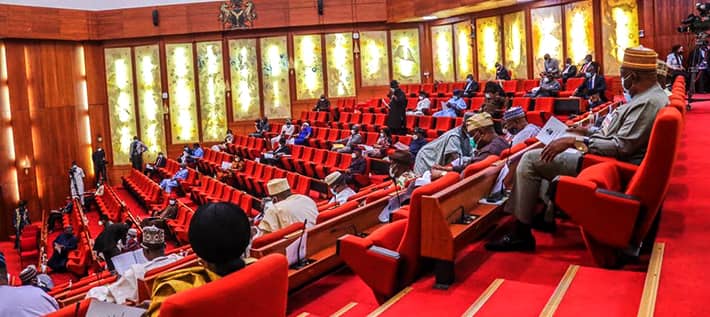By Janet Samuel
The Nigerian Senate has given its final nod to the Sexual Harassment of Students (Prevention and Prohibition) Bill, 2025, concurring with the House of Representatives on the prescription of up to 14 years’ imprisonment for offenders.
The bill, sponsored and presented for concurrence by the Senate Leader, Senator Opeyemi Bamidele (Ekiti Central), seeks to shield students from all forms of sexual misconduct and abuse within academic environments. It also provides a clear legal framework for enforcement, protection, and punishment of offenders.
According to Senator Bamidele, the legislation aims to uphold ethical standards in tertiary institutions, preserve the sanctity of the educator-student relationship built on trust and authority, and ensure respect for human dignity.
Under the new law, any educator found guilty of sexual harassment as defined in Clauses 4(1) to 4(3) faces imprisonment of not less than five years and up to 14 years, without an option of fine. Similarly, lesser offences specified in Clauses 4(4) to 4(6) attract between two and five years imprisonment, also without an option of fine.
The bill makes it clear that student consent shall not constitute a defence in any sexual harassment case. It further provides that the existence of a marital relationship between the educator and the student is the only valid exemption.
The law defines sexual harassment broadly to include solicitation or demand for sexual favours, physical contact such as hugging, kissing, or touching sensitive parts of the body, as well as sending sexually explicit messages, images, or videos to students. It also covers verbal conduct like winking, whistling, or making sexually suggestive comments about a student’s appearance.
The legislation empowers students or their representatives — including relatives, guardians, or lawyers — to file a sexual harassment petition directly to the Nigerian Police Force or the Attorney-General for prosecution. A copy of the petition must also be sent to the affected institution’s Independent Sexual Harassment Prohibition Committee.
During deliberations, some senators commended the initiative but urged the National Assembly to consider broader application beyond educational institutions. Senator Adams Oshiomhole (Edo North) particularly noted that sexual harassment also occurs in workplaces and other social settings.
“There’s no reason to confine this law to schools alone. It should apply across the board,” Oshiomhole said.
However, Deputy Senate President, Senator Barau Jibrin (Kano North), who presided over the session, clarified that since the legislation originated from the House of Representatives and had already been harmonised, only minimal amendments could be made. He added that existing labour and criminal laws already address harassment in other sectors.
Following the brief deliberation, the Senate unanimously passed the bill, marking a significant milestone in Nigeria’s legal protection against sexual harassment in tertiary institutions.














GIPHY App Key not set. Please check settings